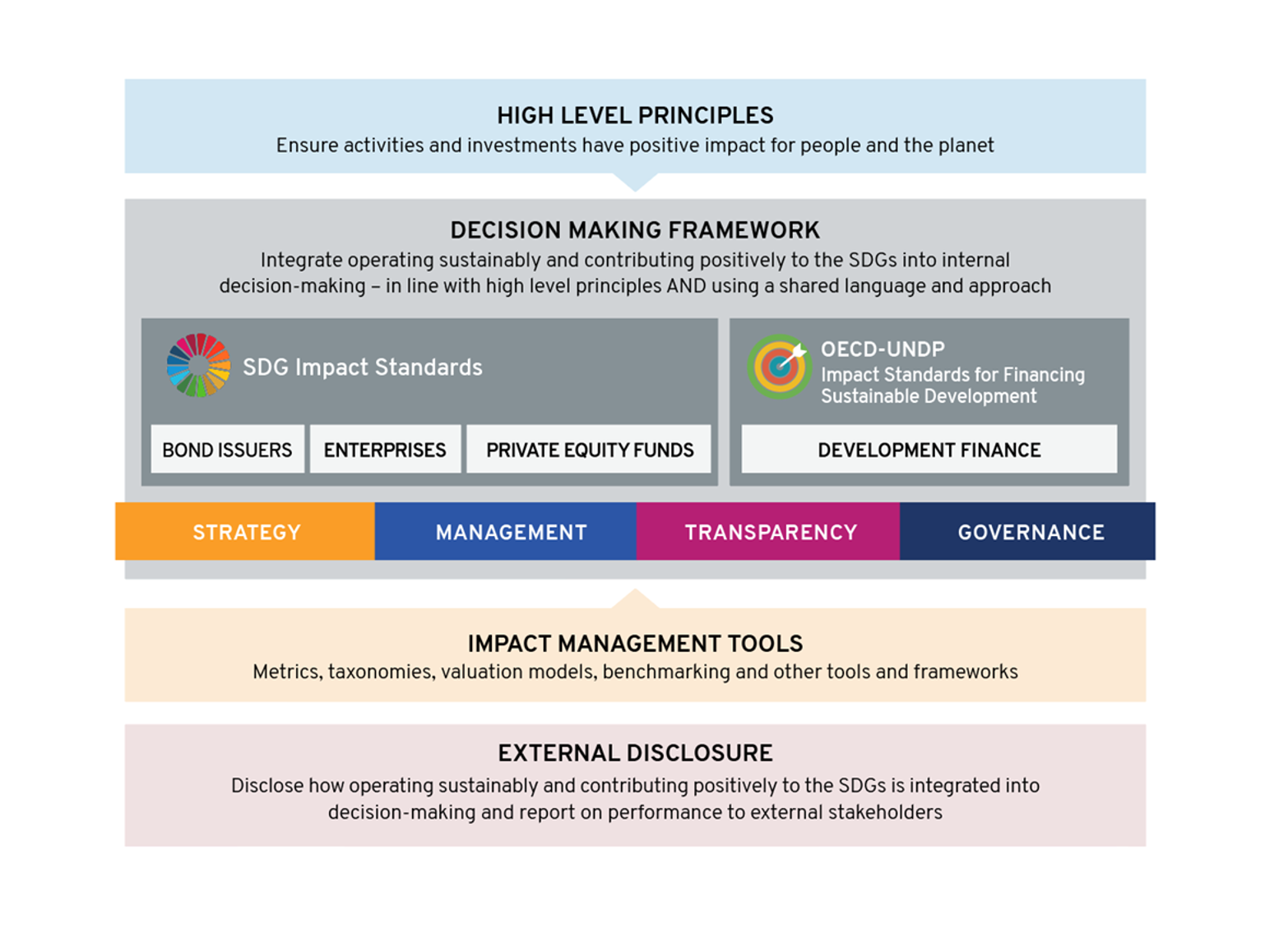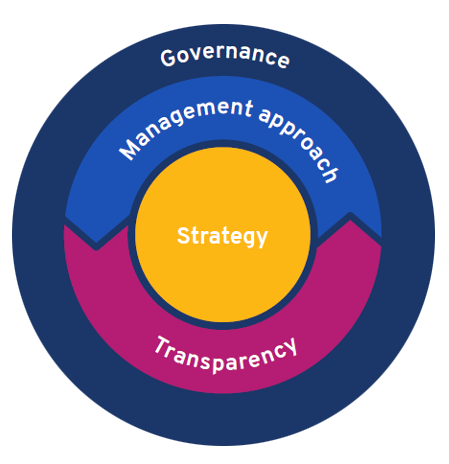The SDG Impact Standards are voluntary internal management standards designed to help businesses and investors embed sustainability and the SDGs into their management systems and decision-making practices. They are management practice standards similar to ISO standards - not external reporting or performance standards.
The SDG Impact Standards build on and complement existing work undertaken by others on impact management and measurement. In fact, in many ways the standards provide a decision-making framework to make sense of existing relevant principles, frameworks and tools while also filling gaps in current market practices which are undermining progress towards sustainability and achievement of the SDGs. The same structure is followed across all the SDG Impact Standards (and including the OECD-UNDP Impact Standards for Financing Sustainable Development). In this way, the SDG Impact Standards create a shared language and approach for sustainability, the SDGs and managing for impact into decision-making and connecting different actors across the system. This lays the groundwork for an enabling environment for greater cross-sector collaboration and innovation in SDG financing solutions.
Learn more by clicking here.

The SDG Impact Standards provide the framework to support organizations to make better decisions – for example, placing sustainability and the SDGs at the heart of value creation and central to purpose, deciding which impacts are important and relevant and therefore how they should be managed. It guides organizations to reimagine business models and partnerships to innovate, create solutions and reach underserved stakeholders, involving stakeholders in decision making. They help with deciding how much information is needed to make a decision and how to manage risk when information is not sufficient, aligning incentives across the organization, and ensuring governance practices reinforce the organization’s commitments and intent.
In short, they define the requirements for strategy, management approach, transparency, and governance that increase the likelihood that an organization is operating sustainably and contributing positively to the SDGs.
The foundations of the SDG Impact Standards are based on:

Standard 1 (Strategy): Embedding sustainability and the SDGs in purpose and strategy is important because it drives attention, focus and resources to what matters most and where the organization can have the most significant impact on important outcomes – including by reducing negative ones
Standard 2 (Management Approach): Integrating responsible business practices and managing for impact into organizational systems and decision-making helps organizations generate options and make more informed choices between options to optimize their contribution towards sustainability and achievement of the SDGs. Operating responsibility and sustainably and contributing to the achievement of the SDGs is not an add on to what business gets done, it’s how all business is done
Standard 3 (Transparency): Being transparent is an important element of being accountable to Stakeholders – all interested parties including those affected or potentially affected in the future by the organization’s decisions and activities. It also helps Stakeholders make more informed decisions, for instance about whether they want to work with or for the organization, invest in or lend to the organization, or buy or use the organization’s products and services
Standard 4 (Governance): Governance is an essential element of embedding responsible business and managing for impact practices into organizational decision-making. The organization’s informal and formal governance mechanisms define expectations of behavior, how decisions are made and how the organization holds itself accountable for its decisions and actions in accordance with its values, principles and policies
If all businesses and investors apply the SDG Impact Standards, we believe that there would be positive contribution to sustainability and the achievement of the SDGs. In effect, the SDG Impact Standards focus on the underlying practices that will underpin future performance and make external reporting against current and emerging regulatory and market requirements more efficient and robust.
Organizations are encouraged to use the SDG Impact Standards and the related self-assessment tools to perform a gap analysis and develop plans to improve practice over time. Organizations are also encouraged to progress towards independent assurance against the SDG Impact Standards using the Assurance Framework being developed alongside the SDG Impact Standards.
Sustainable Development Goals © 2022 SDG Impact Terms and Conditions